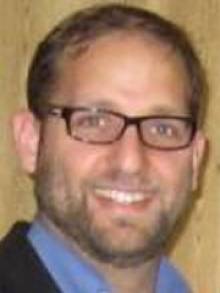David Bergman
MPA in Public & Nonprofit Management & Policy
-
2002

How has Wagner helped you on your career path?
While at Wagner, I started working full time for a trade association of nonprofit mental health providers in NYC, and my career path has been an outgrowth of that. The classes that I took with Professor Victor Rodin were most valuable in terms of thinking about the way different health care systems around world are constructed and how they achieve the goals of reduction in cost, improvements in quality and expansion of coverage.
Were there any skills you gained at Wagner that have been particularly useful to your career?
Most of the work I did at Wagner was an introduction to thinking about things in a quantitative way, which was very different from the primarily qualitative policy work I was doing. Gaining a foundation in quantitative analysis has been very helpful to me.
What’s the best thing about working in Health IT?
What’s so exciting about working in Health IT right now is that there’s so much activity going on. The Office of National Coordinator was created in mid-2000s but it didn’t exist statutorily until the stimulus bill was passed and signed by President Obama in February 2009. We went from being a $60-million organization that worked on interoperability standards and other policy issues to a $2-billion operation with a full grants administration apparatus and grant programs. Dr. David Blumenthal, the National Coordinator recently remarked that what we’re doing is revolutionary; no country has ever tried to effect this kind of a rapid transformation in their health care system in such a short period of time, let alone in a system as heterogeneous and complex at that here in the United States. We are laying the foundation for everything else that will happen in the health care sector in the next 50 years, and that’s tremendously exciting.
I really enjoy working closely with my grant recipients in helping them to think strategically and tactically about how they need to engage in their work—to coordinate with other state partners like Medicaid offices, county medical societies, and primary care associations, as well as to promote EHR adoption and use with individual and small-provider practices.
What are some of the challenges your organization faces and how do you overcome them?
As part of the mission of the Office of the National Coordinator, we work really hard to collaborate and coordinate efforts to improve the availability of health information technology across bodies such as State governments, the Centers for Medicare and Medicaid Services, the Health Resources and Services Administration, and a broad range of agencies including the FCC. The FCC, for example, is important for distributing broadband expansion funds will affect the ability of rural healthcare providers to connect to the health information technology infrastructure.
The coordination is happening at both high and granular levels. We have a series of grants going out that are designed to help states articulate a plan for improving Health IT connectivity throughout their states. We also provide grants to select academic institutions to get ahead on the next wave of development around Health IT, a series of grants to universities for curriculum development, and still others to community colleges in order to train and certify the next way of Health IT professionals.
Any thoughts/advice for Wagner students/alumni interested in the field of Health IT?
Get in fast! There are lots of opportunities and we need everyone we can get. EHRs and Health IT are critical to the next wave of quality improvements that will affect the health care sector. And they will play a vital role in supporting systemic changes like the creation of Accountable Care Organizations and other structural innovations.
What are your future career goals?
Prior to coming to the Office of Health and Human Services, I had my own consulting practice, Healthcare Intelligence Partners, and I loved the freedom of working for myself. I like being engaged in the data components of a project in order to make strategic decisions, and I also enjoy collaboration, working across communities and institutional silos to align resources in a way that everyone recognizes what they can contribute toward the ultimate goals of improving health care quality and reducing costs.